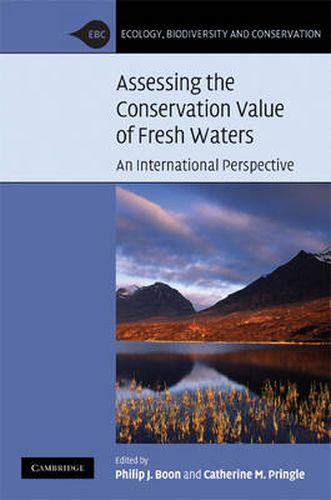Readings Newsletter
Become a Readings Member to make your shopping experience even easier.
Sign in or sign up for free!
You’re not far away from qualifying for FREE standard shipping within Australia
You’ve qualified for FREE standard shipping within Australia
The cart is loading…






Freshwater is a valuable resource for human populations, and has many uses such as water for drinking, hydroelectric power and recreation. This creates conflict between conservation and exploitation. This book explores various aspects of conservation evaluation, including the selection of important areas for protection, responding to threats from catchment development, and determining the restoration potential of degraded water bodies. Aimed at academic researchers, graduate students and professionals, chapters are written by pairs of UK and US authors, who compare methods used for evaluating rivers and lakes for conservation in these countries who share a long history of freshwater science, but approach nature conservation very differently. Sweden, Australia and South Africa are also examined, and there is a chapter on developing countries, allowing examination of the role of social and economic conditions in conservation ethics.
$9.00 standard shipping within Australia
FREE standard shipping within Australia for orders over $100.00
Express & International shipping calculated at checkout
Freshwater is a valuable resource for human populations, and has many uses such as water for drinking, hydroelectric power and recreation. This creates conflict between conservation and exploitation. This book explores various aspects of conservation evaluation, including the selection of important areas for protection, responding to threats from catchment development, and determining the restoration potential of degraded water bodies. Aimed at academic researchers, graduate students and professionals, chapters are written by pairs of UK and US authors, who compare methods used for evaluating rivers and lakes for conservation in these countries who share a long history of freshwater science, but approach nature conservation very differently. Sweden, Australia and South Africa are also examined, and there is a chapter on developing countries, allowing examination of the role of social and economic conditions in conservation ethics.